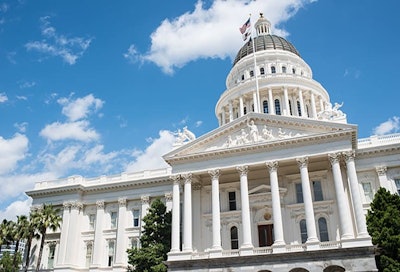
California Gov. Gavin Newsom’s proposed budget would consolidate the state’s three cannabis licensing authorities into one organization, “In an effort to improve access to licensing and simplify regulatory oversight of commercial cannabis activity,” according to a press release issued Jan. 10 by the California Bureau of Cannabis Control.
That agency, along with the Department of Food and Agriculture and the Department of Public Health, is up for possible restructuring under this plan. Newsom’s proposal would pin the consolidation to a July 2021 deadline.
“Establishment of a standalone department with an enforcement arm will centralize and align critical areas to build a successful legal cannabis market, by creating a single point of contact for cannabis licensees and local governments,” Lori Ajax, chief of the Bureau of Cannabis Control, wrote Jan. 10.
More information will be coming this spring.
“This next year is going to be very critical in seeing how quickly we can course-correct and how quickly we can start to see the impacts of these changes,” Josh Drayton, spokesman for the California Cannabis Industry Association, told the Orange County Register. “We have to see who survives.”
For more than two years now, the story in California has been one of survival along razor-thin margins—both in terms of business balance sheets and economic access to the legal market. As of late 2019, the illicit market in California continued to outpace legal adult-use cannabis sales.
At the same time that Ajax announced Newsom’s consolidation plan, she noted a few other tax-related changes coming to the cannabis industry in California. The proposals include moving “the responsibility for the cultivation excise tax from the final distributor to the first [distributor], and for the retail excise tax from the distributor to the retailer.” In doing this, the Department of Tax and Fee Administration would no longer be required to estimate product mark-ups and wholesale tax rates, as it did ahead of 2020.
“The changes will reduce the tax collection burden on the cannabis industry and simplify the tax collection process,” Ajax wrote.


























